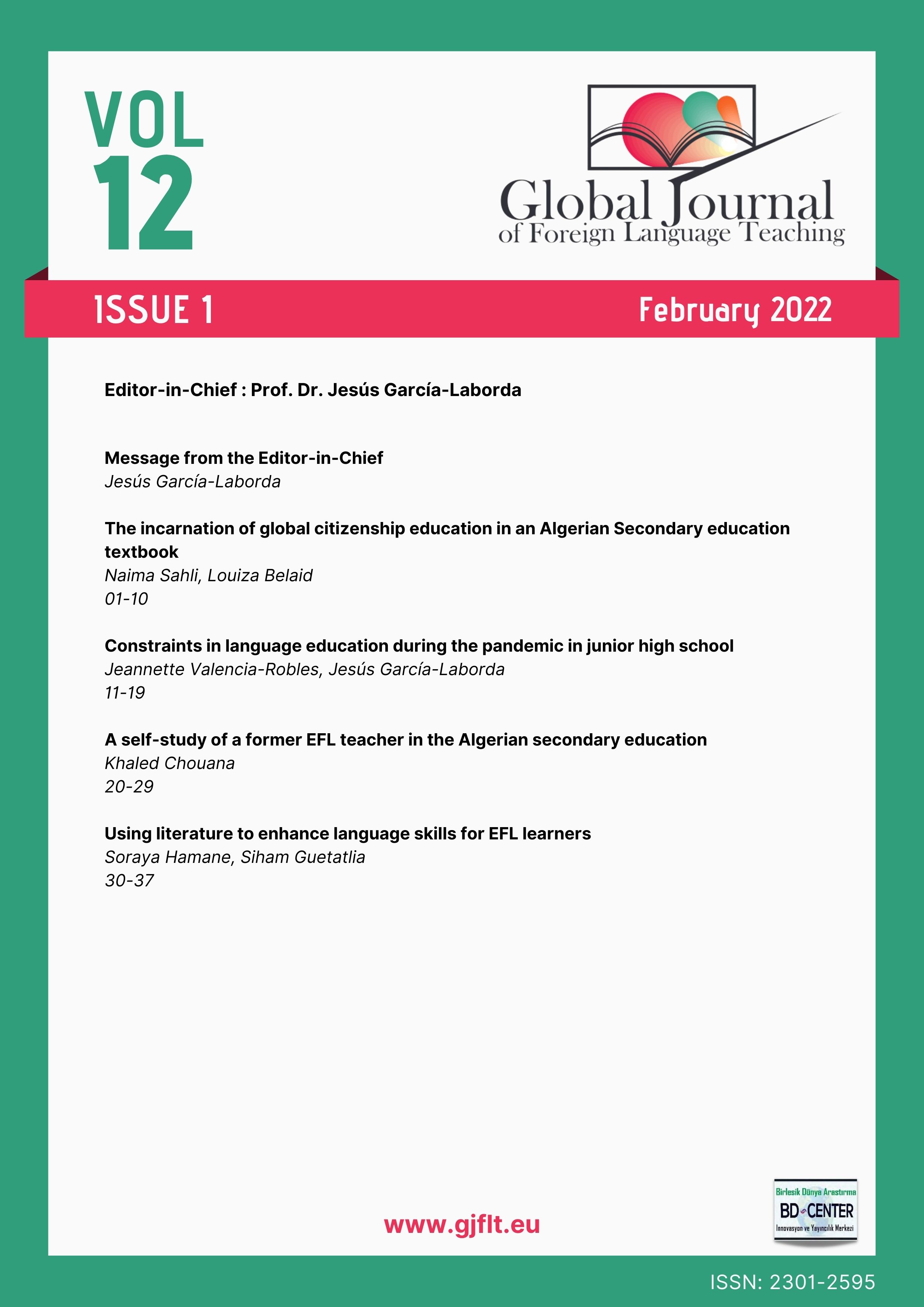Constraints in language education during the pandemic in junior high school
Main Article Content
Abstract
The pandemic has prevented language learners worldwide from getting the right education. English is just one of those subjects in which this has been remarkably significant due to the lack of classroom interaction and the reduced amount of input students have received. The current study explores 14 EFL teachers’ reflections on the main challenges they have been facing. Their responses were given in an open-ended survey. The Content Analysis carry out aimed at identifying the main constraints primary and secondary EFL teachers have faced while teaching during the first months of the pandemic. It also addresses the possible solutions they have used to address the input scarcity due to the current situation. The paper stresses that it is clear the role that input and strategies have in language learning. The paper concludes that the gap in learning may require additional teaching support in the incoming years.
Keywords: Covid-19; emotional intelligence; online learning; teacher’s reflections.
Downloads
Article Details

This work is licensed under a Creative Commons Attribution 4.0 International License.
Authors who publish with this journal agree to the following terms:- Authors retain copyright and grant the journal right of first publication with the work simultaneously licensed under a Creative Commons Attribution License that allows others to share the work with an acknowledgement of the work's authorship and initial publication in this journal.
- Authors are able to enter into separate, additional contractual arrangements for the non-exclusive distribution of the journal's published version of the work (e.g., post it to an institutional repository or publish it in a book), with an acknowledgement of its initial publication in this journal.
- Authors are permitted and encouraged to post their work online (e.g., in institutional repositories or on their website) prior to and during the submission process, as it can lead to productive exchanges, as well as earlier and greater citation of published work (SeeThe Effect of Open Access).
